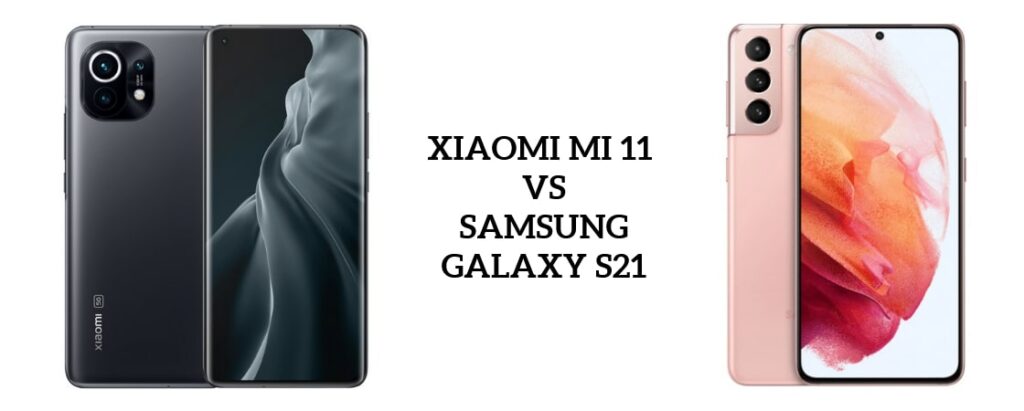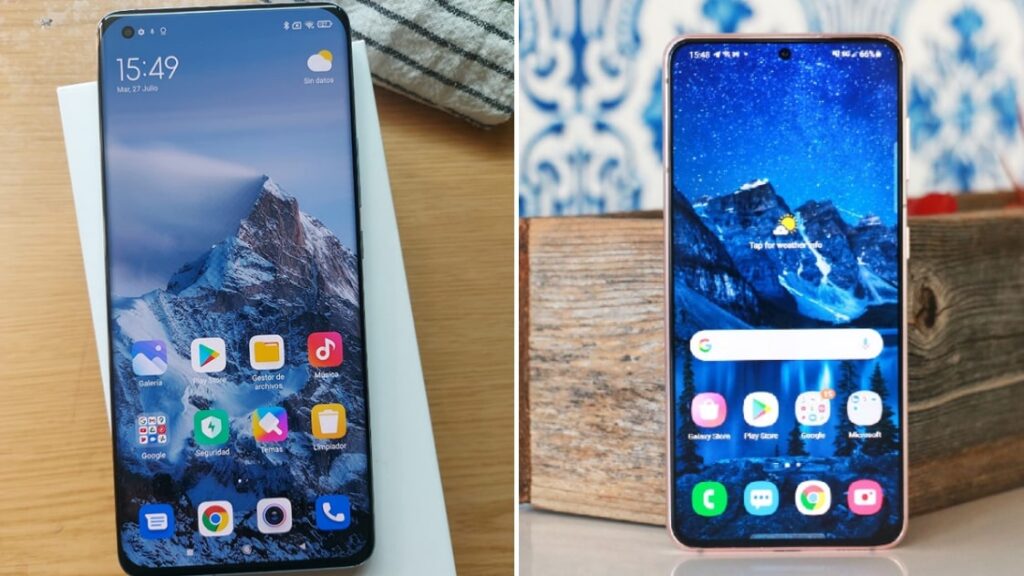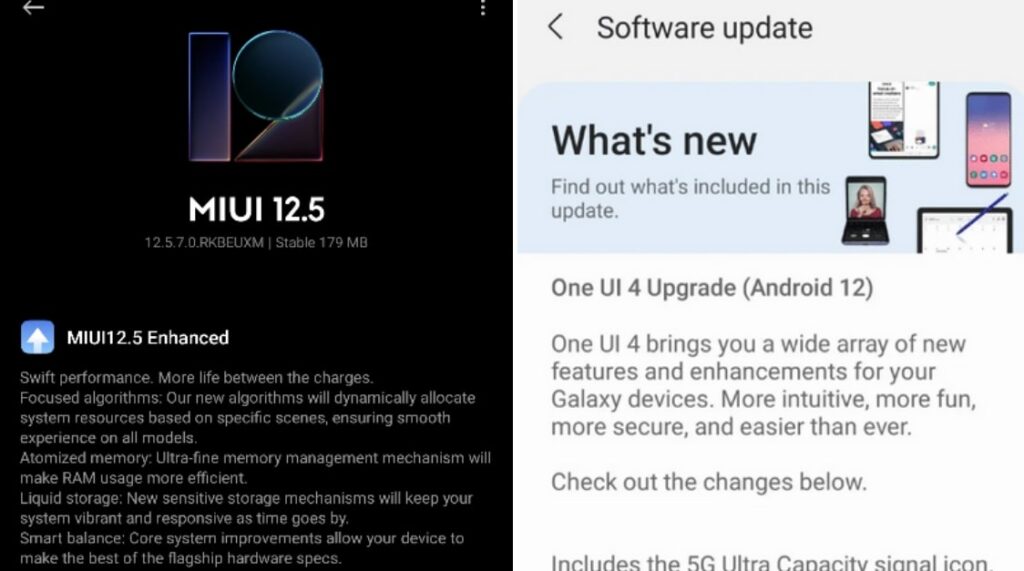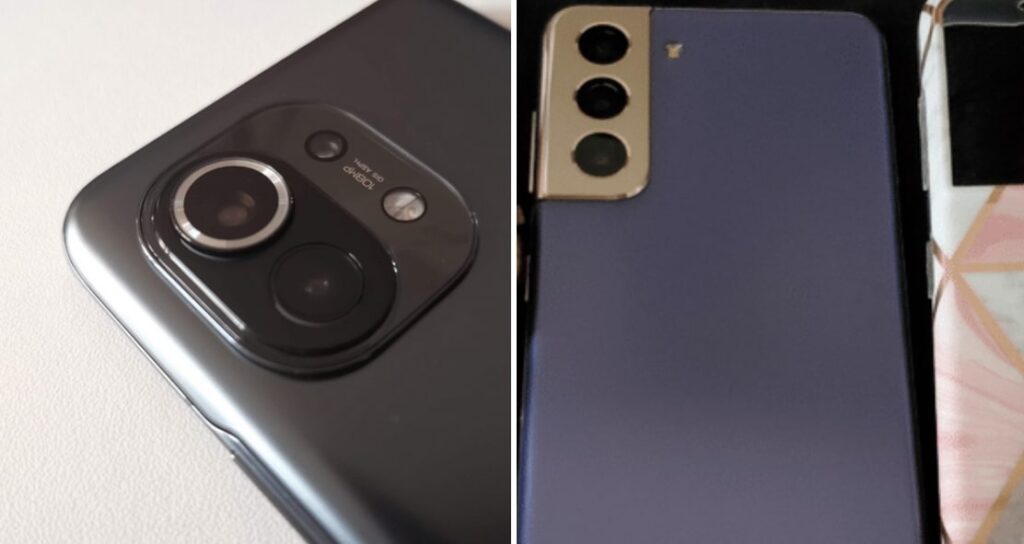
As someone who’s used both Xiaomi and Samsung smartphones, I’ve noticed some major differences when it comes to performance, value for money, and after-sales support.
So, if you’re wondering which brand gives you the best bang for your buck, let’s dive into a detailed comparison between Xiaomi and Samsung.
While taking Xiaomi vs Samsung into account, which one is the best?
Affordability and Value for Money:
Xiaomi is widely acclaimed for its commitment to providing high-quality smartphones at competitive prices. The brand's Redmi and Poco series, in particular, offer remarkable value for budget-conscious consumers.
Xiaomi's strategy of offering feature-packed devices at lower price points has resonated well with users seeking affordability without compromising essential features.
High-Performance Budget and Mid-Range Options:
Xiaomi has consistently delivered powerful and well-performing smartphones in the budget and mid-range segments. Devices like the Redmi Note series are known for their impressive specifications, including high-capacity batteries, quality displays, and capable processors.
The company's focus on offering a variety of options in these segments allows users to choose devices that align with their specific needs without breaking the bank.
Innovative Designs and Form Factors:
Xiaomi's Mi Mix series has been at the forefront of smartphone design innovation, introducing bezel-less displays and unique form factors. The company has a reputation for pushing the boundaries of traditional smartphone design.
Xiaomi's commitment to innovation in design showcases a willingness to experiment with new technologies and deliver devices that stand out in the market.
Quick Adoption of New Technologies:
Xiaomi has demonstrated a knack for quickly adopting new technologies and integrating them into its smartphones. Whether it's high-refresh-rate displays, advanced camera sensors, or fast charging technologies, Xiaomi tends to incorporate the latest advancements in its devices.
This approach allows Xiaomi users to experience cutting-edge features sooner than some other brands.
Community and Developer Support:
Xiaomi has a strong community of users and developers, particularly evident in its MIUI interface. The MIUI community actively contributes to the development of custom ROMs, themes, and mods, providing users with a high level of customization options.
Xiaomi's openness to community involvement fosters a sense of engagement among users who appreciate a more customizable and community-driven smartphone experience.
Wider Range of Budget Models:
Xiaomi offers an extensive range of smartphones across various price points, allowing users to find a device that suits their budget constraints. This wide variety caters to a diverse audience, including entry-level users, budget-conscious consumers, and those seeking mid-range options.
Global Expansion and Market Share:
Xiaomi has rapidly expanded its presence globally and has gained a significant market share in various regions. The brand's success in emerging markets is indicative of its ability to meet the diverse needs of users worldwide.
Xiaomi's global expansion contributes to a diverse user base and a wide-reaching brand presence.
Xiaomi vs Samsung
Before we delve into the major differences between the flagship contenders, let’s take a quick look at what Xiaomi did differently in terms of marketing and after sales to overthrow Samsung as the leading smartphone manufacturer in the world.
Brand Marketing
Both Xiaomi and Samsung are on either end of the spectrum when it comes to their marketing goal. While Samsung prefers to shell out loads of cash on marketing and promotions, Xiaomi on the other hand depends on social media and influencer marketing to get their products out there.
Xiaomi has resorted to selling their new products through online flash sales and they have managed to be successful. Samsung still spends big bucks on print advertising and visual ads to have their devices sold to the public.
Now, due to the fact that Samsung spends a lot of money on advertising, they have to increase the cost of their products to cover any losses which is why their smartphones are expensive.
Verdict - Xiaomi wins when it comes to brand marketing simply because they have been able to dominate the market with minimal marketing done.
After Sales Support
Both brands have a big team of specialists dedicated to getting the job done. Xiaomi and Samsung offer both in-house after-sales support and over the phone support depending on the type of service you’re looking for.
When it comes to warranty, Xiaomi offers after-sales warranty on their devices for up to a period of 2 years, whereas Samsung limits their warranty across devices to a period of 1 year from the date of purchase.
Samsung offers support even out of their retail stores, something that Xiaomi has not been able to do since they do not have any physical retail stores and their products are sold online. The only way you can service your Xiaomi device is if you visit the nearest Mi Service center.
Verdict - Though Xiaomi does not have any retail stores they beat Samsung in terms of after-sales support simply because Xiaomi is able to provide timely service and that they offer 2 year warranty on all their smartphones.
Xiaomi vs Samsung - Mi 11 vs Galaxy S21

The Mi 11 and the S21 are flagship devices from Xiaomi and Samsung. They come loaded with the latest specs and use proprietary operating systems that have been based around Android to deliver a unique user experience.
Let’s take a look at some of the key metrics that will help us determine which one is the best flagship of 2022.
Display

It’s good to know that Samsung is a leading display manufacturer with even high-end brands like Apple using their displays in the iPhone and iPad.
- That being said, we found that the Galaxy S21 is a premium device that comes equipped with a 6.2” FHD Dynamic AMOLED display that delivers crystal clear images at all times.
- The Mi 11 on the other hand uses a suped up QHD 6.81” display which offers a higher resolution on a budget. Both devices are equipped with 120Hz refresh rate which is great for gaming and will improve your overall user experience.
Operating System

As I explained earlier, both Xiaomi and Samsung devices run on a custom OS that’s built over Android 11.
- The Samsung S21 runs on One UI 3.1 which is a feature rich OS that lacks user optimization and comes riddled with bloatware. But the Xiaomi Mi 11 runs on MIUI 12.5 which is their own OS and offers rich animations, transitions and will give you a unique experience.
- MIUI 12.5 is customizable unlike One UI and at the end of the day everything boils down to which one of the two offers the best user experience.
If you’re looking for a polished UI then go ahead with Samsung, however if you’re fed up with using the same old OS again and again, switch over the MIUI and you will not regret it.
Performance
Comparing both the Mi 11 and the S21 in terms of performance is rather easy considering they both run on the Snapdragon 888.
- This may not be the case for Samsung as S21 devices that are sold in countries apart from China and the US are equipped with the Samsung Exynos 2100 processor.

- If you’re looking at the S21 running on the Snapdragon 888 then you will find no difference in the levels of performance offered. However, the Samsung S21 using an Exynos 2100 chip will not be able to compete with the Snapdragon 888 on the Mi 11.

- Both devices offer the fastest levels of speed on any Android device we’ve seen. They both have an Octa-core processor with powerful GPUs, large RAM slots and even UFS 3.1 storage options with multiple variants available on the Mi 11 (128GB and 256GB).
- The Mi11 and the S21 are great for gaming and streaming online content. There’s no lag in the gameplay and the processors are built to encourage multitasking which is brilliant.
Camera

There’s almost no difference between the performance of the camera set up on both the Mi 11 and the S21.
- Both devices are capable of recording video at 8K and 4K, but stereo microphones on the S21 greatly enhance the quality of the video being recorded.
- We liked that both the Mi 11 and S21 come equipped with Gyro-EIS stabilization and HDR10+ to deliver better images and with the help of the AI enhancements and professional tools that have been pre-loaded into these devices, you can expect to have crisp, balanced images and videos.
- The only difference between both devices is that the Mi 11 uses a 108MP rear triple camera set up whereas the S21 has a 64MP triple camera set up. The front selfie cameras on both devices are great, but the Samsung S21 uses a 12MP wide lens that’s capable of shooting 4K videos unlike the Mi 11 that is capable of shooting 1080p videos out of their 20MP wide-angle selfie camera.
Battery Life
Coming to battery life, the Mi 11 is loaded with a large 4600mAh battery that does a phenomenal job even though the phone is quite big with a high resolution display. The Samsung S21 on the other hand uses a smaller 4000mAh battery that keeps the device running upwards of 24 hours on a single charge.
- Following Apple’s footsteps, the Galaxy S21 does not come with a charger in the box but the device is designed to support 25W fast charging and you can use any Samsung fast charger laying around.
- The Mi 11 also comes with fast charge capabilities and supports 50W peak power supply which is double the rate Samsung uses.
- You can expect a decent two day battery life from both devices and the Mi 11 can be recharged from 0% to 100% in a little under an hour whereas the S21 would take double the time for the battery to get recharged.
- Both the S21 and Mi 11 support Qi wireless charging but the Xiaomi Mi 11 charges faster regardless of whether you’re using a cable, Qi charger or reverse wireless charging.
Xiaomi Mi 11 vs Samsung S21 - An Overview
| Xiaomi Mi 11 | Samsung Galaxy S21 | |
| Processor | Snapdragon 888 Octa Core | Exynos 2100 Octa Core |
| Battery | 4600mAh | 4000mAh |
| RAM | 6GB/8GB/12GB | 8GB |
| Storage (UFS 3.1) | 128GB/256GB | 128GB/256GB |
| Operating System | Android 11 (MIUI 12.5) | Android 11 (One UI 3.1) |
| Display | 6.81” QHD AMOLED display with 120Hz Refresh Rate | 6.2” HD Dynamic AMOLED display with 120Hz Refresh Rate |
| Primary Camera | 108MP wide + 13MP ultra wide + 5MP macro | 64MP telephoto + 13MP wide + 13MP ultra wide |
| Selfie Camera | 20MP HDR | 12MP HDR |
| Charging Capabilities | 55W Fast charging; 50W wireless charging; 10W reverse charging | 25W Fast charging; 15W wireless charging; 4.5W reverse charging |
| Price | $567.90 | $698.00 |
Verdict
Both devices are spectacular and come loaded with some of the latest technology. The Samsung S21 trumps the Xiaomi Mi 11 only in the operating system and user interface, whereas the Xiaomi Mi 11 wins overall, with a better camera, faster processor, larger battery and display. Also, the Xiaomi Mi 11 costs around $200 less than the Galaxy S21 making it the best premium smartphone between the two.
FAQ’s
Is Xiaomi better than Samsung?
When taking their latest flagships into consideration, we found that the Xiaomi Mi 11 supersedes the Samsung S21 by a mile. It has a larger high resolution display, powerful processor and comes equipped with additional features that you would find in a high-end phone. Samsung’s flagship does not do as well with these benchmarks and due to the fact that it’s more expensive than the Xiaomi Mi 11, we’re going to side with Xiaomi as the better brand.
Does Samsung hold the title of best smartphone manufacturer?
Until June 2021 Samsung was the reigning champ in terms of market share. However, that all changed as Samsung managed to slip to second place with a total share of 15.7% whereas, Xiaomi took the lead with over 17% market share.
Why are Xiaomi smartphones more popular than Samsung?
Xiaomi smartphones are more popular and are sought after more than Samsung due to the fact that they are affordable devices and come equipped with high performance components and are built from premium materials. Also their proprietary operating system, the MIUI, is unique and is highly customizable unlike Samsung’s One UI.





